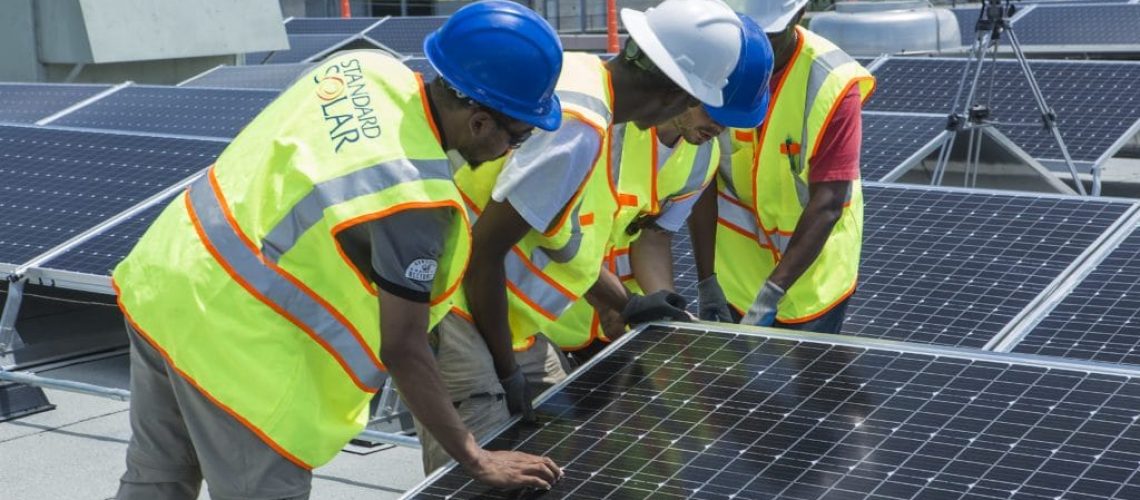Kansas state Senator Mike Thomas has made several attempts at legislation that is considered anti-solar in his state, and at times he has shared false information about the health and economic impacts of renewable energy.
Early this year, Sen. Mike Thompson of Kansas (R) introduced new laws that would require solar and wind facilities to be built only on lands zoned for industrial use. About half the state’s 105 counties are rural and unzoned, so the bill could effectively freeze renewable energy growth in the state. Kansas already uses a fair amount of renewable energy when compared to other states, and the Energy Information Association reports renewables powered 44% of Kansas’ operation in 2020.
“It would be sending a message…that, well perhaps Oklahoma, or Missouri, or Nebraska, or Texas or Iowa would be a better and more stable state in which to invest dollars,” said Kimberly Svaty, public policy consultant for the Kansas Power Alliance, which represents the state’s clean energy industry.
The law did not find support from other legislators, so now Thompson is targeting county-level zoning laws to combat the development of clean energy. He has targeted Thompson and Johnson counties, looking to heavily restrict zones that are open to development.
Barbara Kerr, a founding member of an anti-solar group in the state that is attempting to block NextEra Energy’s utility-scale solar project in the two counties, said that her groups website has featured videos with misinformation about solar, and Senator Thompson has spread similar false messages.
“Just horrible,” Kerr says of the videos. “They are just counterfactual and not something we should have on the website.”
Anti-solar groups have made false claims, such as solar farms creating “heat islands” that are harmful to nearby livestock. They have made claims that solar is an attempt by China to weaken the United States, and that solar panels contaminate groundwater, despite the fact they are made of non-harmful materials like silicon, aluminum and steel. Solar developers must post funds up-front for the eventual decommissioning of the project, yet anti-solar groups falsely claim landowners and taxpayers will be stuck with paying for the process.
Despite Kerr’s expression of distaste in the manipulative information, she sided with the group’s decision to continue to show the videos. “It is important to not judge, and censor utility-scale solar content/opinions contributed by citizens. If we become judge and jury, we are headed down the wrong path,” the group said in an emailed statement.
Thompson has misinformed the public, too. He has made claims that wind farms have acute, adverse health effects on people that live near the turbines. He also invited witnesses to testify that solar developers will snatch up the family farm at will, though private energy developers do not hold the power of eminent domain.
In an opinion piece for the Kansas City Star, Steven Clark, a solar PV engineer with 42 years of experience, wrote, “Solar opponents believe intermittent renewables are ‘unreliable’ since they use variable wind and sunshine. However, renewables have been successfully integrated into the Southwest Power Pool, which serves Kansas and 16 other states, for 20 years. The pool’s highest renewable energy peak supplied 87.5% of the power utilized on May 8, 2021. Intermittent renewables haven’t caused blackouts.”
Clark went on to write that Sen. Thompson’s anti-renewable policies violate his own core political beliefs of limited government. Despite being a purported stalwart of free enterprise, Thompson is actively using government to block market participation.
Clark writes, “They want property tax exemptions revoked for renewable plants, but not for conventional power plants. They claim solar farms require large amounts of land, but ignore the extensive footprints of conventional power plants with their associated coal mines, gas wells, pipelines and railroads. They exaggerate the minor environmental impacts of renewable power, but ignore the very harmful impacts of fossil fuel power plants, including their climate-warming carbon emissions.”



